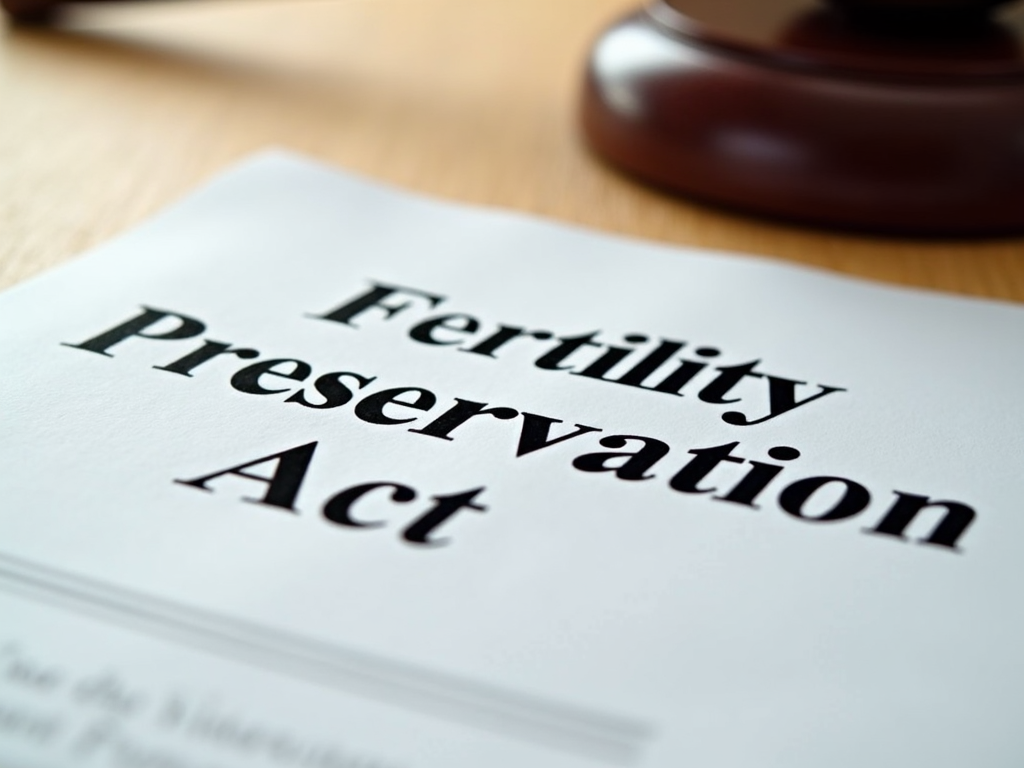Personal Stories of Cancer and Fertility Preservation: Navigating Challenges and Hope
May 10, 2025, 7:23 a.m.
Overview: Cancer can be a life-altering diagnosis, but for many young patients, the thought of losing their fertility adds an extra layer of worry. Fertility preservation offers hope, allowing cancer patients to protect their ability to have children in the future. In this article, we share personal stories of individuals who have navigated the challenges of cancer and fertility preservation. These stories highlight the emotional and practical aspects of the journey, while also shedding light on state laws and insurance coverage that can make a difference.
The Emotional Journey of Fertility Preservation
When Sarah, a 28-year-old woman, was diagnosed with breast cancer, her world turned upside down. "I was already dealing with the shock of cancer, and then I learned that the treatments could affect my fertility," she recalls. "It was overwhelming." Sarah's story is not unique. Many cancer patients face the same fear—losing the chance to have children. Fertility preservation, which includes options like egg freezing or sperm banking, can provide a sense of control during a time of uncertainty.
For Sarah, the decision to preserve her fertility was deeply personal. "I always dreamed of being a mom," she says. "Even though I wasn't ready to have kids yet, I wanted to keep that option open." Her journey wasn't easy. The process of egg freezing required time and money, and she had to balance it with her cancer treatments. But for Sarah, it was worth it. "Knowing that I had taken steps to protect my future gave me strength to face my treatments," she shares.

Understanding State Laws and Fertility Preservation
Fertility preservation isn't just a medical decision—it's also a legal and financial one. State laws play a crucial role in determining what options are available to cancer patients. For example, some states have laws that require insurance companies to cover fertility preservation for cancer patients. These laws can make a significant difference, as the cost of procedures like egg freezing can be prohibitively expensive.
In California, for instance, a law passed in 2019 mandates that insurance companies cover fertility preservation services for patients undergoing treatments that could cause infertility, such as chemotherapy. This law has been a game-changer for many patients. "I was relieved when I found out my insurance would cover the cost," says Mark, a 32-year-old man who preserved his sperm before starting cancer treatment. "It took a huge financial burden off my shoulders."
However, not all states have such laws in place. In states without mandatory coverage, patients often have to pay out of pocket, which can be a significant barrier. "I had to make the tough decision to forgo fertility preservation because I couldn't afford it," shares Emily, a 25-year-old cancer survivor. "It was heartbreaking, but I had no choice."
Table: States with Fertility Preservation Laws
| State | Law Enacted | Coverage Details |
|---|---|---|
| California | 2019 | Mandates insurance coverage for fertility preservation |
| New York | 2020 | Requires coverage for cancer patients |
| Illinois | 2018 | Covers fertility preservation for medical reasons |
| Connecticut | 2017 | Mandates coverage for patients facing infertility |
For more information on state laws, visit this resource.

Fertility Preservation Insurance Coverage for Cancer Patients
Insurance coverage for fertility preservation varies widely depending on where you live and your insurance plan. For cancer patients, understanding what is covered can be confusing and stressful. "I spent hours on the phone with my insurance company trying to figure out what they would cover," says John, a 30-year-old man who banked his sperm before starting chemotherapy. "It was frustrating, but I knew it was important."
Some insurance plans cover fertility preservation as part of cancer treatment, while others do not. In states without mandatory laws, patients may need to advocate for themselves or seek financial assistance from nonprofits. Organizations like the Livestrong Fertility Program offer discounted rates and financial support for cancer patients.
"I was lucky to find a program that helped cover the costs," says Maria, a 27-year-old woman who froze her eggs before starting treatment for lymphoma. "Without that support, I don't know what I would have done."
For cancer patients, it's essential to discuss fertility preservation with their healthcare team as early as possible. Oncologists can provide guidance on the best options and help navigate the insurance process. "My doctor was amazing," says Sarah. "She connected me with a fertility specialist and helped me understand my options."
List: Steps to Take for Fertility Preservation
- Talk to your oncologist about fertility risks.
- Ask for a referral to a fertility specialist.
- Check your insurance coverage for fertility preservation.
- Explore financial assistance programs if needed.
- Make a decision that feels right for you.

Personal Stories: Triumphs and Challenges
Fertility preservation is not just about medical procedures—it's about hope and the future. For many cancer patients, the ability to preserve their fertility is a lifeline. "It gave me something to look forward to," says Mark. "Even when I was going through the toughest parts of treatment, I knew that I had taken steps to protect my dream of having a family."
But the journey isn't always straightforward. Some patients face setbacks, such as failed procedures or complications from cancer treatments. "My first attempt at egg freezing didn't yield many eggs," shares Emily. "It was disappointing, but I decided to try again. The second time was more successful, and I'm so glad I didn't give up."
For others, the decision to preserve fertility is complicated by the uncertainty of their prognosis. "I wasn't sure if I would survive my cancer," says John. "But I still wanted to try. It was a way of holding onto hope."
These personal stories highlight the resilience and determination of cancer patients. They also underscore the importance of support—from healthcare providers, family, and friends. "My partner was my rock," says Sarah. "He was with me every step of the way, from doctor's appointments to the egg retrieval procedure."
Fertility preservation is a deeply personal choice, and there's no one-size-fits-all approach. What matters most is that patients have the information and support they need to make the best decision for themselves.

Conclusion: Hope for the Future
Cancer is a challenging journey, but fertility preservation offers a glimmer of hope for many patients. By sharing their stories, individuals like Sarah, Mark, Emily, and John inspire others to consider their options and take control of their future. State laws and insurance coverage play a crucial role in making fertility preservation accessible, but there's still work to be done to ensure that all cancer patients have the support they need.
If you're facing a cancer diagnosis, remember that you're not alone. Talk to your healthcare team about fertility preservation, explore your options, and don't be afraid to ask for help. Your future is worth fighting for.